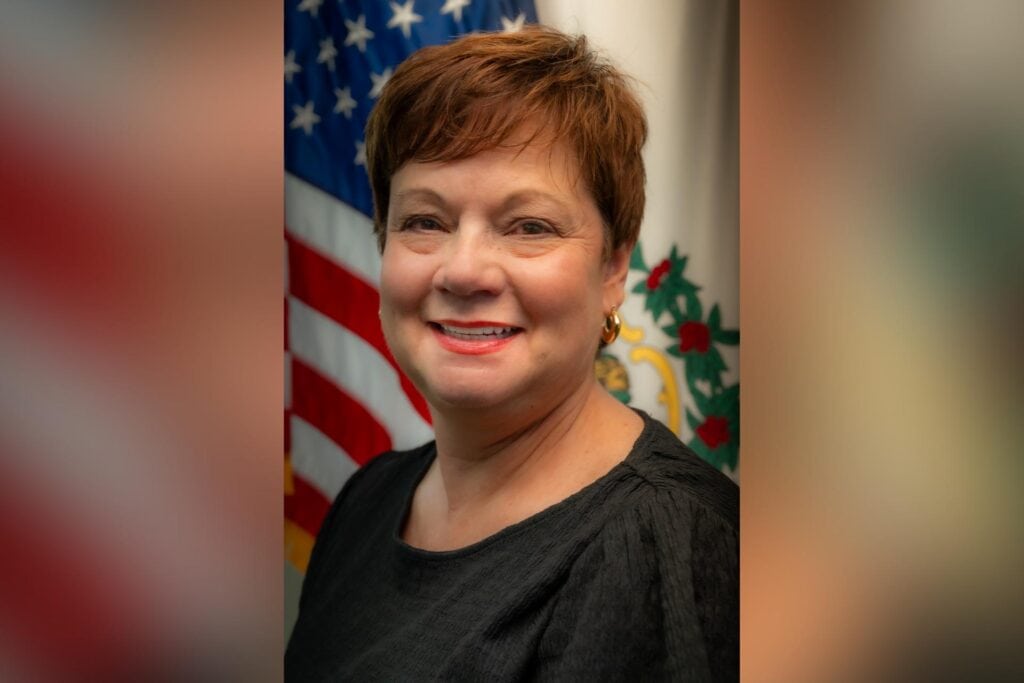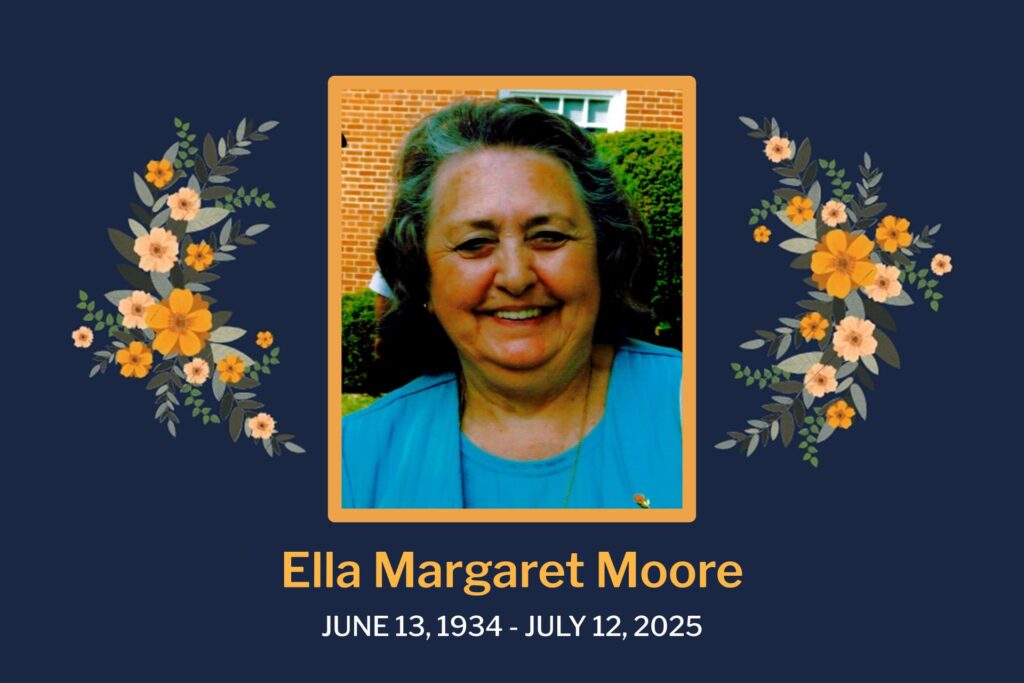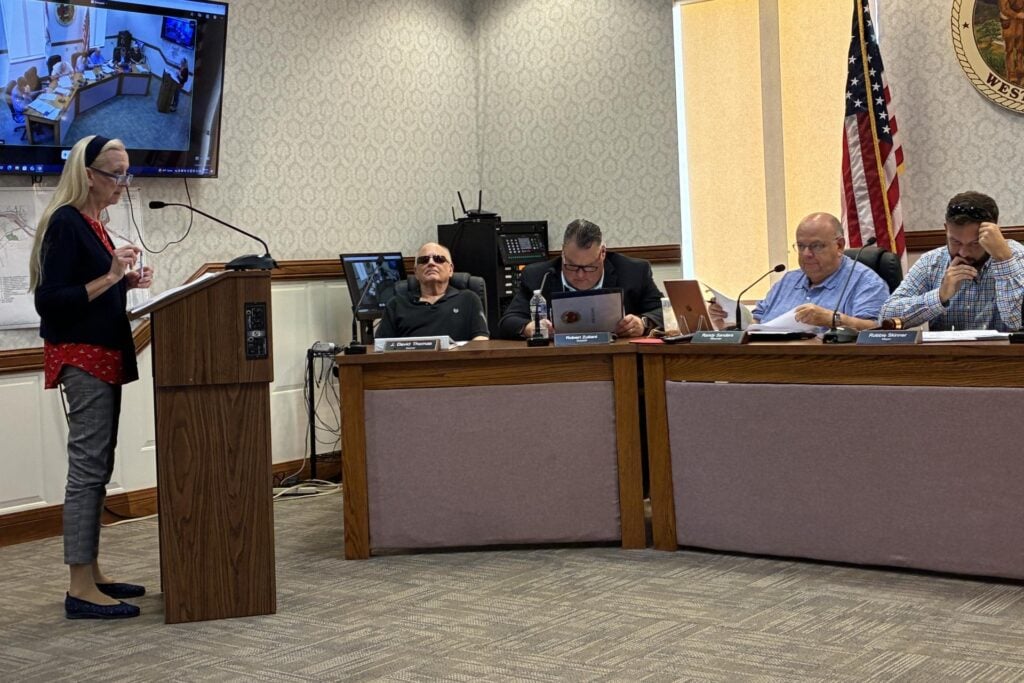BUCKHANNON – Upshur County Board of Education members learned about a new proposal with local law enforcement to reimplement the D.A.R.E. program Tuesday during their regular meeting.
BOE members had many questions they wanted answered before unanimously approving the proposal.
Lt. Mark Davis of the Upshur County Sheriff’s Department, along with Upshur County Sheriff David H. Coffman, explained the proposal to BOE members. Student Services Director Jodie Akers said she was excited about the D.A.R.E. program and said when Lt. Davis approached her about the program, she welcomed the opportunity to have the conversation and help it move forward in Upshur County.
In 1992, Upshur County School initially implemented the D.A.R.E. – Drug Abuse Resistance Education – program, Davis said.
“I was the D.A.R.E. Officer in Upshur County in 1992 from when the program started until 2000,” he said. “It was only taught, at that particular time, in the fifth grade in elementary schools, but we covered every elementary school in Upshur County. Unfortunately, after 2000, the D.A.R.E. program kind of went aside.
“In light of the drug epidemic that faces every county in every state, we want to bring the D.A.R.E. program back into the school system,” Davis said.
Davis said the program was founded in 1983 at the Los Angeles Police Department, and he said today, there are more than 15,000 officers spread out over more than 10,000 communities nationwide.
“They are becoming the first line of defense to equip [students] with the skills to avoid these issues with drugs and these situations,” Davis said. “The program is in all 50 states, and the program that was taught in 1992 – that was taught here – covered drugs, alcohol, gangs and peer pressure. They have restructured the program now to meet the drugs that are in today’s society including huffing, vaping, meth and synthetic drugs and the pressures associated with them.”
“The kids are having a tough time,” Davis added. “That is the main reason we want to bring back the program – these kids need a way out.”
Davis said the program is now designed to teach kids the skills to handle modern-day situations.
“D.A.R.E. is a long-term program – it is designed as a 10-week program,” he said. “The uniformed officer goes into the schools, and he teaches these classes. It now has a lot of role playing associated with it, rather than listening to lecturing. In the studies they have done, the evidence shows kids are learning more how to handle situations when they have had an opportunity to practice the skills rather than just listening to someone tell them what they are supposed to do.”
In the prior D.A.R.E. program, Davis said the training only targeted students in fifth grade.
“This new structure covers K through 12; they have broadened it out,” he said. “When we send an officer for training, they will be in a two-week, 80-hour course, where they learn a crash-course in how to be a teacher – how to present the program, keep students involved and keep their attention … all the things that teachers do.”
Davis said the 80-hour training is intense, but when the trainees are complete, they are prepared to step into a classroom with no fear.
“The program now has an advantage with follow-through,” he explained. “This allows us to have a D.A.R.E. officer in the elementary schools, the middle school and a third in the high school. We already have PRO Officers in the middle and high school and part of their duties is to teach classes. Both Rocky Hebb and C.J. Day are excited about this and are on board to get started with this.”
Davis said along with PRO Officers Hebb and Day, they are getting a third officer prepared to teach D.A.R.E. in the county’s elementary schools.
“This will allow for follow through and make the program even stronger than the one from before,” he said. “I think this will be an advantage.”
Next, Davis talked about the cost of administering the D.A.R.E. program in Upshur County Schools.
He said the potential cost has been lessened because Prevention Resource Officers are already in place.
“The new officer we would put in the elementary schools…we already talked to the Upshur County Commission, and they are on board with us 100 percent to help make this happen.”
Davis said the students use a workbook, and the cost of that is $1.29 per student. “I believe the Upshur County Commission is on board to work with businesses and the Upshur BOE to help make sure the students get the materials they need.”
The target date to restart D.A.R.E. education in Upshur County Schools is January 2020.
“We would start in the middle school,” Davis said. “C.J. Day has already applied to go to D.A.R.E. officer training in Maryland. When we get that settled in, he can start teaching in the sixth-grade classes in the middle school in January 2020,” he said. “Then, we can get the next two officers trained, and in the fall of 2020, and we can start in the elementary and high schools. That is our goal as of today, and everything is right on target.”
Davis said he has been researching the D.A.R.E. program for about a year and comparing how it was when he taught the program and versus what it’s like now.
“I have talked with other counties, sheriffs and D.A.R.E. officers about how they like the program compared to the older program,” Davis said. “They praise it from one end to another and have nothing but good things to say about the program. There are 10 lessons in the program, and it lasts from 45 to 60 minutes per lesson.”
Davis said he wants to bring the D.A.R.E. program back to the Upshur County Schools because “these students are worth this.”
“I know what it stands for, and I know what it teaches, and I believe in what it does. It is very rewarding. It does make a difference – it does make an impact on your community,” he said.
Coffman said the D.A.R.E. program cost has been approved by the Upshur County Commission.
“They are totally on board,” Coffman said. “They wanted me to let you know they would like to go into an equal partnership and share any upcoming costs. They are excited we want to move forward with it.”
Coffman said training costs for the officer would be approximately $600 to $800 for food and lodging during the 80-hour training. Davis said the training in Maryland, where Day applied to attend, has no charge for the training.
BOE vice president Katie Loudin said she had some questions about the proposed reintroduction of D.A.R.E. in Upshur County Schools.
“I have looked at this – I’m a child of the 1990s,” Loudin said. “The research said the D.A.R.E. program did not work in the 90s. I think we would be remiss to ignore that point. I think you have made the case that it is different than the 90s. Is there any evidence out yet about this revised curriculum?”
Davis said the research to which Loudin was referring was pulled from heavily populated urban areas and may not have been reflective of the program’s effectiveness in smaller, rural areas.
“When D.A.R.E. was first out, there were surveys done that indicated the program did not work,” Davis replied. “A lot of those surveys were completed in large cities and large areas where the situation was a lot more intense than here. When you look at those statistics, they went back and on average, there is a minimum of 33 percent of students who are getting away from drugs and handling the pressure better. That is on the low end.”
Davis said when he taught the D.A.R.E. program in the 1990s, he gave the program everything he had.
“A lot of years have passed, but I can tell you this: there are people who have made mistakes in their lives who went through that program, and they have told me personally they remember what I taught them in class, and [told me], ‘you were right.’
“I had students who are now parents with kids of their own, and they have sent me letters and cards and thanked me for the D.A.R.E. program telling me they remember what I said, and they chose not to use drugs.”
Davis said he knows the D.A.R.E. program worked in Upshur County and made a difference in people’s lives.
“They were hungry for it, and I don’t have any doubt in my mind that they are still hungry for it and there are still kids out here that are looking for a way out,” he said. “If I have the chance to bring something back [that might save a child’s life] down the road, I am all in because I believe in it that strongly. If you save one life, if you save one kid, oh my goodness, you cannot put a price tag on that.”
Assistant superintendent Dr. Debra Harrison said she had some first-hand experience with D.A.R.E. as she had a D.A.R.E. Club when she worked in Doddridge County.
“One of the benefits I saw was when we were in the club period and we were doing a lesson, it allowed the students an opportunity to share with one another and talk about things that were happening in their homes,” Harrison said. “It allowed them to understand they were not the only ones going through those things and that there was a different way to live. The bonding that happened in that program … helped them realize they didn’t have to go through these types of things because there is another way.”
Loudin said she is excited to do D.A.R.E. again and feels the program is needed.
“I’m just struggling a little bit with how it looks with this generation,” Loudin said.
BOE President Dr. Tammy Samples said a memorandum of understanding with the Upshur County Commission regarding the cost of the D.A.R.E. program needs to be drafted.
“I am certainly willing to partner with the county, and I think that reduces our monetary input,” Samples said. “I think we need that spelled out.”
George Carver, business manager for Upshur County Schools, said Upshur County is fortunate to have PRO Officers in three schools.
“It is cost-prohibitive for us to put PRO Officers in each elementary school,” he said. “It seems to me this is a way to get those officers in the schools at a very reasonable cost. The D.A.R.E. program is a presence, and it starts to establish those relationships with the kids at an early age without having the full-blown cost of having a PRO Officer in every school.”














